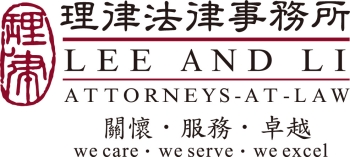In a lawsuit requesting the payment of property rights to prevent the losing debtor from delaying, failing to perform or taking advantage of an opportunity to release said property to another party through an appeal procedure, the winning creditor can request that the court deliver a pre-final enforcement order along with its judgment. Once the court does so, the creditor can petition for the pre-final enforcement procedure to satisfy its claims granted before said judgment becomes final and irrevocable.
Patent rights fall under intangible property rights. Therefore, in disputes relating to the ownership of patent rights, rights holders can petition for a pre-final enforcement order to preserve their rights before a judgment becomes final and irrevocable in addition to requesting the title transfer recordation of the disputed patent. However, in a Supreme Court ruling of 23 October 2019 (Ruling 2019 Tai-Kan 825), it was explicitly stated that the pre-final enforcement of a patent transfer recordation was unnecessary and that the enforcement court will reject any such related petitions.
Party A requested in the first-instance court that Party B transfer a disputed patent in accordance with an employment contract and expressed its willingness to provide a security deposit to petition for pre-final enforcement of the disputed patent. The first-instance court considered that Party A's claim for the patent transfer was reasonable and declared a pre-final enforcement order along with its judgment approving such a claim. Party A thus took said order as a writ of execution and petitioned the enforcement court for the pre-final enforcement. Party A also claimed that the act of patent transfer recordation was irreplaceable and that the enforcement court should urge Party B to perform said act by the indirect compulsory means provided for in Article 128(1) of the Compulsory Enforcement Act or request the related authorities to provide appropriate assistance under Article 129-1 of the same act.
However, the enforcement court dismissed Party A's pre-final enforcement petition. Party A raised an objection but it was also dismissed by the enforcement court. Therefore, Party A appealed to the Intellectual Property Court and the Supreme Court, but both appeals were rejected.
The Intellectual Property Court and the Supreme Court held that Article 130(1) of the Compulsory Enforcement Act clearly stipulates that where a judgment ordering a debtor to express a specific intention becomes irrevocable or a writ of execution bearing the same effect with an irrevocable judgment is created, the debtor is deemed to have expressed said intention when the judgment becomes irrevocable or the writ of execution is created. In the case at hand, Party A filed a lawsuit requesting that Party B express a specific intention (ie, the transfer recordation of the disputed patent). When Party A obtained an irrevocable judgment, it could apply to the Intellectual Property Office for the patent transfer recordation on the basis of said irrevocable judgment regardless of whether Party B had expressed its intention to transfer the patent (under Article 130(1) of the Compulsory Enforcement Act, Party B would be deemed to have agreed to transfer said patent). Pre-final enforcement would therefore be unnecessary, since Party A could achieve enforcement in a legally pro forma way.
The Supreme Court also clearly stated that while the debt which a debtor must agree to pay is an irreplaceable act of debt, it may be enforced via indirect compulsory enforcement means (Articles 128(1) and 129-1 of the Compulsory Enforcement Act). However, for a patent transfer recordation, the enforcement of which can be achieved by a creditor obtaining a declaration from a debtor, Article 130(1) of the Compulsory Enforcement Act prevails without enforcing the debt via indirect compulsory enforcement means.
In a lawsuit requesting the transfer of patent rights, creditors cannot preserve their rights in advance through pre-final enforcement procedures. Said rights can only be satisfied once the final and binding judgment has been delivered, even when the court has granted a pre-final enforcement order.





